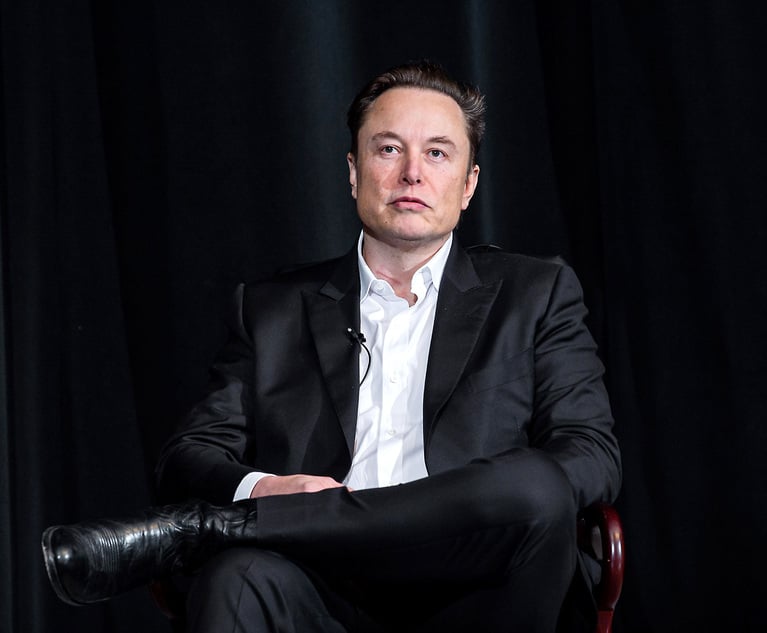The Firms That Fear Scrutiny on Pro Bono
Law firms talk a good game on pro bono but Legal Week found some were unwilling to offer up even basic information.
November 05, 2019 at 04:59 AM
4 minute read
Law firms love to talk about their pro bono exploits – until you ask them precisely what they do. At that point, many grow guarded and suspicious. That was what happened when Legal Week asked firms about their efforts in this area.
The more we investigated, the more it became clear that what is supposed to be a great example of human charity sometimes appears more like a marketing exercise that seeks constant praise but fears any basic scrutiny.
Legal Week's sister title The American Lawyer has been gathering pro bono data from law firms for years. It produces a highly influential annual league table that ranks the firms dedicating the most time to pro bono activities. We decided it would also be interesting to know which U.K. firms put the most effort into pro bono initiatives, so compiled a survey to find out. That's when the whole saga began.
We were told by some firms that comparing the pro bono work they do to that of their rivals was "irresponsible" and "unnecessary". Much of the consternation stemmed from the idea that in the U.K, pro bono thrives not on competition but collaboration, with firms often working together on major projects. So, the theory goes, rankings could damage that collaborative spirit.
To deal with this issue carefully, Legal Week's article praises important collaborative work but does not shy away from basic comparisons, as we felt it would be wrong for firms to use this as an excuse to avoid being transparent on the topic.
Firms that do pro bono in the U.K. are more interested in the outcome of their efforts than the hours put in, firms said, so it would be unhelpful to have a ranking that focused solely on the numbers.
In response, we decided to include factors such as the type of work, the outcome, and the recommendations of peers when ranking the list. We also explained that we were attempting to praise firms that did good work rather than criticise firms that did little. The focus is on the 10 best firms. The ones that do the least pro bono work, according to the survey, are not even included in the article.
But many firms still refused to join in. The largest of these were Linklaters, Allen & Overy, Slaughter and May, Kirkland & Ellis and White & Case – all firms that make a big deal of their pro bono work online. Others were CMS, Bryan Cave Leighton Paisner, Eversheds Sutherland and Norton Rose Fulbright.
Some brazenly said they would wait to see what the coverage looked like this year before deciding whether to take part next year. Others said they did not have the data available – but given that we were asking for very basic numbers such as how many hours are spent on pro bono and how many lawyers do it, plus a few examples, this was either a lie or an embarrassing admission that they don't take the topic very seriously.
Bizarrely, some of these firms actively tried to market their pro bono efforts to us while at the same time saying they would not take part in the survey, which sums up the hypocrisy of those firms desperate for good coverage but fearful of any comparison.
This is not an indictment on the industry as a whole; these firms were in the minority. Most firms we approached took part in the survey and many were able to demonstrate the excellent work they do in this area. Firms such as Hogan Lovells, Ashurst, Herbert Smith Freehills and DLA Piper, for example, clearly take their pro bono work very seriously and there was a feeling that they would be proud of it even if it did not compare well against their rivals.
But it is desperately sad that for the firms that refused, their fear of scrutiny has compromised their ability to disclose basic information on their charitable endeavours.
This content has been archived. It is available through our partners, LexisNexis® and Bloomberg Law.
To view this content, please continue to their sites.
Not a Lexis Subscriber?
Subscribe Now
Not a Bloomberg Law Subscriber?
Subscribe Now
NOT FOR REPRINT
© 2025 ALM Global, LLC, All Rights Reserved. Request academic re-use from www.copyright.com. All other uses, submit a request to [email protected]. For more information visit Asset & Logo Licensing.
You Might Like
View All
Now That the Trump Era Has Begun, Change Is Coming. For Big Law, Change Is Already Here
6 minute read
The Quiet Revolution: Private Equity’s Calculated Push Into Law Firms
5 minute read
Trending Stories
- 1No Two Wildfires Alike: Lawyers Take Different Legal Strategies in California
- 2Poop-Themed Dog Toy OK as Parody, but Still Tarnished Jack Daniel’s Brand, Court Says
- 3Meet the New President of NY's Association of Trial Court Jurists
- 4Lawyers' Phones Are Ringing: What Should Employers Do If ICE Raids Their Business?
- 5Freshfields Hires Ex-SEC Corporate Finance Director in Silicon Valley
Who Got The Work
J. Brugh Lower of Gibbons has entered an appearance for industrial equipment supplier Devco Corporation in a pending trademark infringement lawsuit. The suit, accusing the defendant of selling knock-off Graco products, was filed Dec. 18 in New Jersey District Court by Rivkin Radler on behalf of Graco Inc. and Graco Minnesota. The case, assigned to U.S. District Judge Zahid N. Quraishi, is 3:24-cv-11294, Graco Inc. et al v. Devco Corporation.
Who Got The Work
Rebecca Maller-Stein and Kent A. Yalowitz of Arnold & Porter Kaye Scholer have entered their appearances for Hanaco Venture Capital and its executives, Lior Prosor and David Frankel, in a pending securities lawsuit. The action, filed on Dec. 24 in New York Southern District Court by Zell, Aron & Co. on behalf of Goldeneye Advisors, accuses the defendants of negligently and fraudulently managing the plaintiff's $1 million investment. The case, assigned to U.S. District Judge Vernon S. Broderick, is 1:24-cv-09918, Goldeneye Advisors, LLC v. Hanaco Venture Capital, Ltd. et al.
Who Got The Work
Attorneys from A&O Shearman has stepped in as defense counsel for Toronto-Dominion Bank and other defendants in a pending securities class action. The suit, filed Dec. 11 in New York Southern District Court by Bleichmar Fonti & Auld, accuses the defendants of concealing the bank's 'pervasive' deficiencies in regards to its compliance with the Bank Secrecy Act and the quality of its anti-money laundering controls. The case, assigned to U.S. District Judge Arun Subramanian, is 1:24-cv-09445, Gonzalez v. The Toronto-Dominion Bank et al.
Who Got The Work
Crown Castle International, a Pennsylvania company providing shared communications infrastructure, has turned to Luke D. Wolf of Gordon Rees Scully Mansukhani to fend off a pending breach-of-contract lawsuit. The court action, filed Nov. 25 in Michigan Eastern District Court by Hooper Hathaway PC on behalf of The Town Residences LLC, accuses Crown Castle of failing to transfer approximately $30,000 in utility payments from T-Mobile in breach of a roof-top lease and assignment agreement. The case, assigned to U.S. District Judge Susan K. Declercq, is 2:24-cv-13131, The Town Residences LLC v. T-Mobile US, Inc. et al.
Who Got The Work
Wilfred P. Coronato and Daniel M. Schwartz of McCarter & English have stepped in as defense counsel to Electrolux Home Products Inc. in a pending product liability lawsuit. The court action, filed Nov. 26 in New York Eastern District Court by Poulos Lopiccolo PC and Nagel Rice LLP on behalf of David Stern, alleges that the defendant's refrigerators’ drawers and shelving repeatedly break and fall apart within months after purchase. The case, assigned to U.S. District Judge Joan M. Azrack, is 2:24-cv-08204, Stern v. Electrolux Home Products, Inc.
Featured Firms
Law Offices of Gary Martin Hays & Associates, P.C.
(470) 294-1674
Law Offices of Mark E. Salomone
(857) 444-6468
Smith & Hassler
(713) 739-1250










